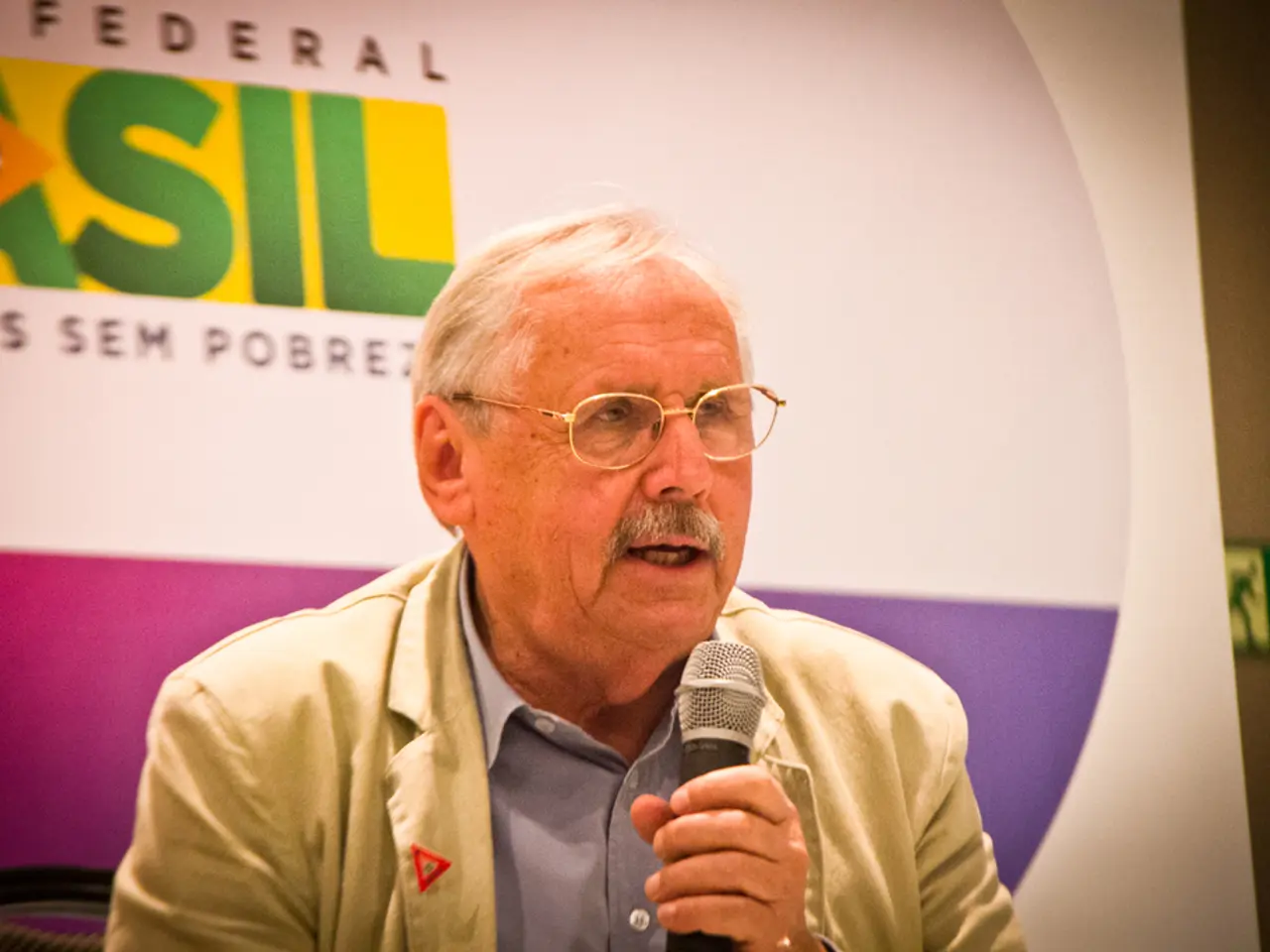Trump repeatedly threatened a takeover of Washington D.C. during his 2024 campaign, with some stating that he is now fulfilling that pledge.
In the heart of August 2025, a significant shift in Washington, D.C.'s law enforcement landscape unfolded. The Metropolitan Police Department is currently under investigation following a shooting incident on the 11th of the month. This event comes amidst a unique and contentious situation, as the city is experiencing a federal takeover of its police department and the mobilization of the National Guard.
The federal takeover is rooted in Section 740 of the District of Columbia Home Rule Act, which allows the President to assert temporary emergency control over the Washington, D.C. Metropolitan Police Department (MPD) in extraordinary circumstances. However, it's crucial to note that this provision does not grant the President direct control over the MPD. The Mayor retains ultimate command, with the President's authority limited to directing the provision of police services.
The Trump administration initially attempted to replace the MPD chief with a federal official, a move that was seen as exceeding the authority granted by Section 740. A federal court intervened, leading to an arrangement whereby the elected MPD chief remains in command, while a Drug Enforcement Administration official acts as a federal liaison between the Trump administration and the D.C. government.
This legal maneuvering has sparked debate over federal overreach and the potential erosion of D.C.'s home rule and local police autonomy. Critics argue that the administration’s interpretation overreaches statutory limits, risking infringement on the District’s autonomy.
The background for this action was a claimed crisis of violent crime in D.C., including a high homicide rate surpassing several major international cities, and incidents threatening the safety of federal workers and officials. President Trump characterised the takeover as necessary to restore law and order in the nation's capital, deploying the National Guard alongside asserting control over the MPD.
Notably, President Trump has warned that he could declare a national emergency to prolong his control if Congress resists. The deployment of the National Guard and federalization of the MPD is a fulfilment of President Trump's campaign promise to restore law and order in Washington, D.C., a promise he made during his 2024 presidential campaign.
The move has drawn controversy, with former Republican House Speaker Newt Gingrich calling on Congress to take back control of Washington, D.C. This call was made following the shooting of Mike Gill, a former official who worked under the Obama and Trump administrations, in a carjacking in Washington, D.C. in 2024.
Alexandra Koch, a journalist who covers breaking news, with a focus on high-impact events that shape national conversation and influence government response, is closely following this developing story. The deployment of the National Guard was aimed at deterring crime and beautifying the city, according to White House spokeswoman Abigail Jackson.
As the investigation into the shooting continues, the future of law enforcement in Washington, D.C., and the balance of federal and local authority, remains a topic of intense discussion and debate. The Trump administration's actions have raised constitutional and legal questions about the scope of presidential emergency powers and federalism, particularly since Washington, D.C., though a federal district, retains a local government with its own police force.
References:
[1] The Washington Post. (2025, August 15). Federal takeover of Washington, D.C. police sparks debate over local autonomy. Retrieved from https://www.washingtonpost.com/local/dc-politics/federal-takeover-of-washington-dc-police-sparks-debate-over-local-autonomy/
[2] CNN. (2025, August 12). Trump declares public safety emergency, federalizes D.C. police. Retrieved from https://www.cnn.com/2025/08/12/politics/trump-dc-emergency-takeover/
[3] The Hill. (2025, August 14). Trump's D.C. takeover: What you need to know. Retrieved from https://thehill.com/policy/national-security/523483-trumps-dc-takeover-what-you-need-to-know
[4] NBC News. (2025, August 13). Trump invokes emergency powers to federalize D.C. police. Retrieved from https://www.nbcnews.com/politics/donald-trump/trump-invokes-emergency-powers-federalize-dc-police-n1284826
- The ongoing investigation into the Metropolitan Police Department, stemming from a shooting incident in Washington, D.C., is unfolding amidst a political climate marked by a federal takeover and the mobilization of the National Guard, raising questions about local autonomy and federal overreach in policy-and-legislation.
- The controversial federal takeover of Washington, D.C.'s police department, as a result of a claimed crisis of violent crime, has sparked debate over the potential erosion of local police autonomy and the scope of presidential emergency powers in war-and-conflicts and crime-and-justice issues.
- Breaking news reports are closely following the shores of the Trump administration's actions in taking control of the MPD, as it remains a hot topic of discussion due to constitutional and legal implications in the political landscape, with the maintenance of law and order at the forefront of concerns.
- In the wake of a car-accident and crime increase, President Trump's deployment of the National Guard and federalization of the MPD could mark a turning point in its policy-and-legislation and law-enforcement, leading to a new era of enhanced safety measures or alleged encroachment on local sovereignty.
- As the investigation into a high-profile shooting case continues, the future of law enforcement in Washington, D.C., and the balance of federal and local authority, are under scrutiny, not only for the implications in the ongoing case but also in the broader context of car-accidents, crime-and-justice, and general-news events that shape the city and the nation.








